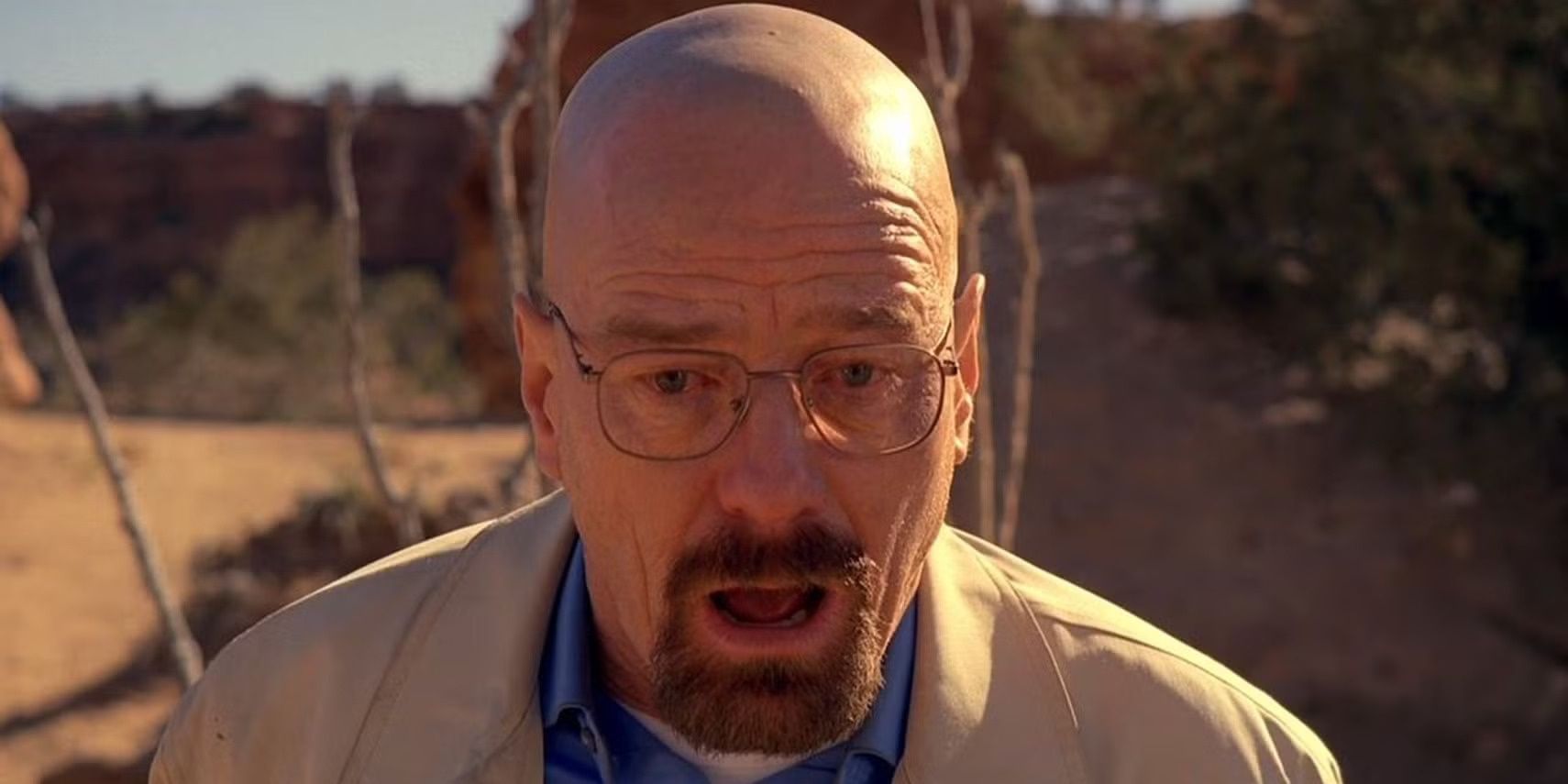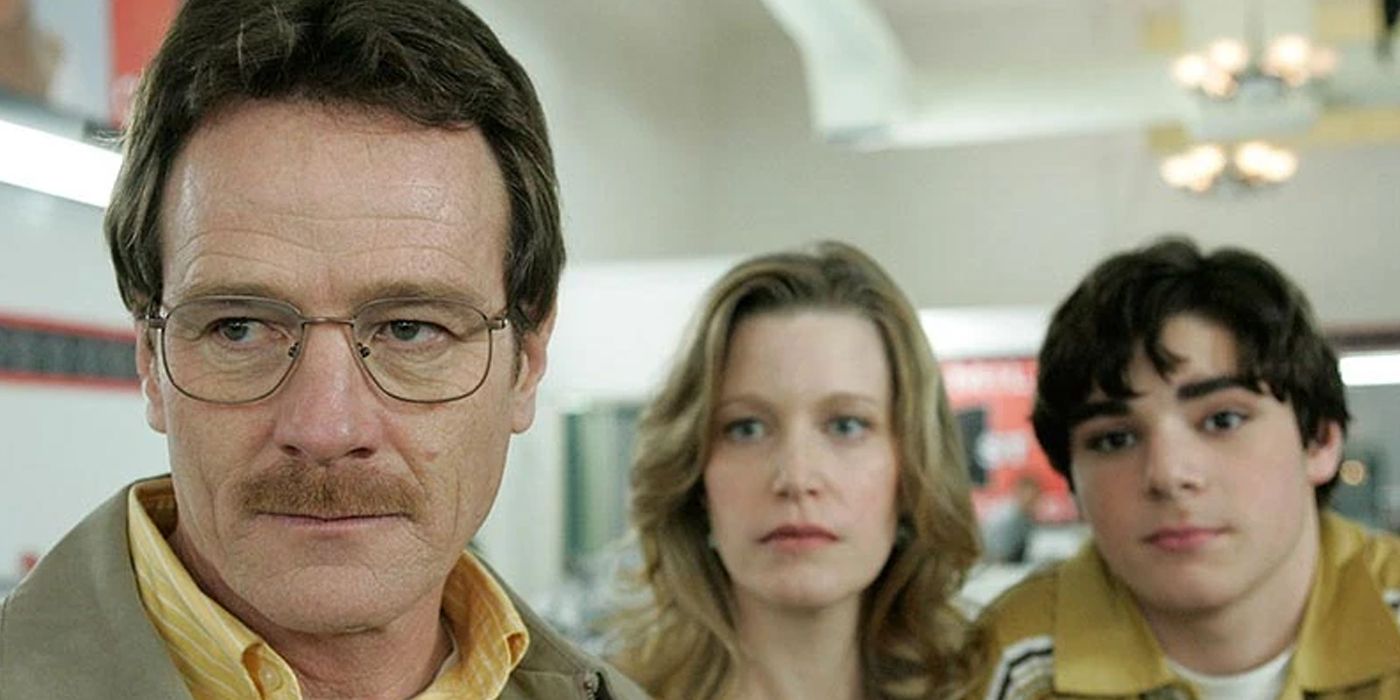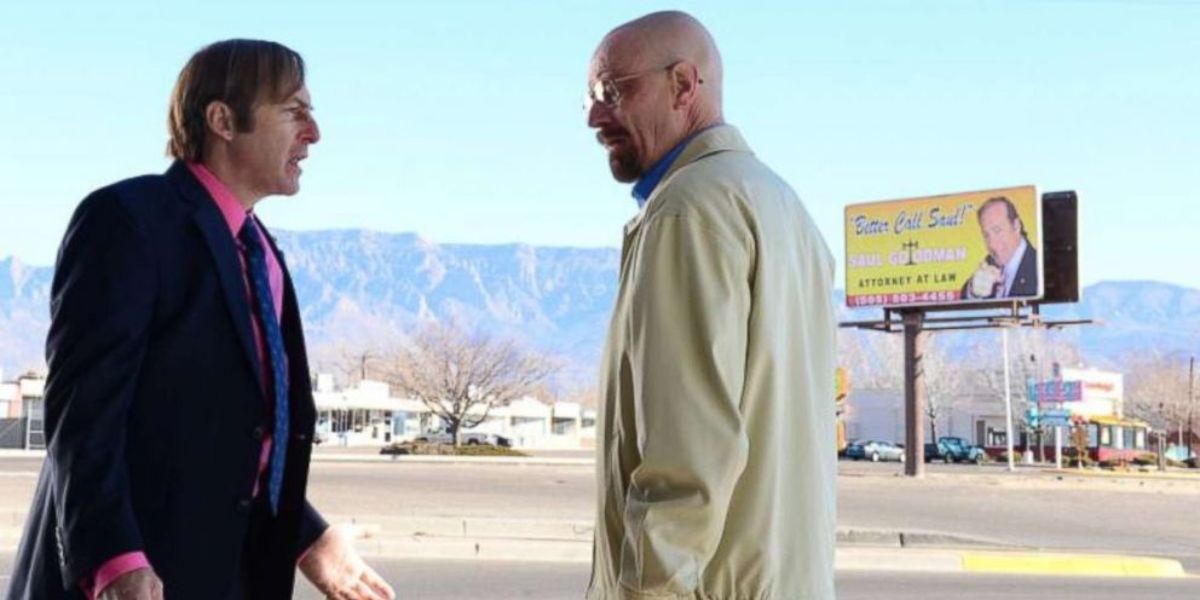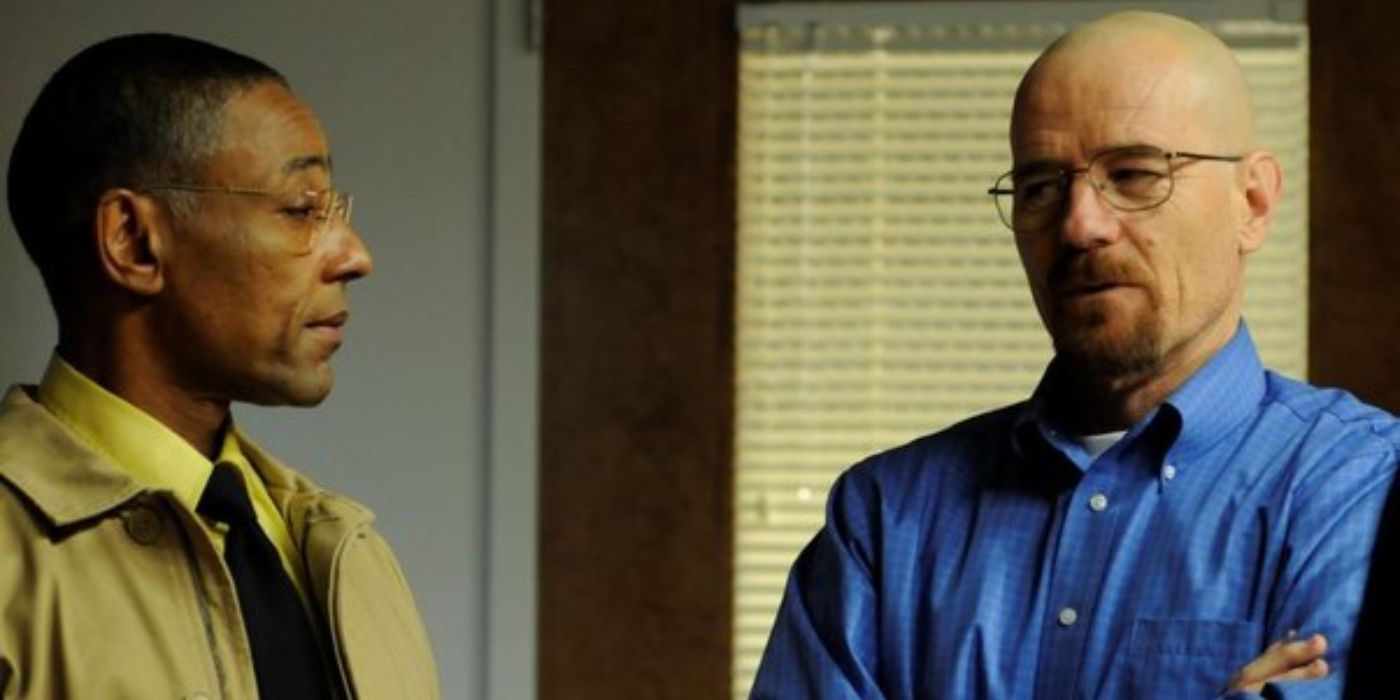
As a devoted film enthusiast, I can’t help but reflect on how deeply “Breaking Bad” resonated with me, and perhaps millions of others, as a captivating tale that transformed an ordinary high school chemistry teacher named Walter White into a ruthless criminal mastermind known as Heisenberg. The title alone hinted at the dramatic transformation to come, and once Walter made his fateful decision to “go bad,” it was clear he was driven by compelling and, in some ways, heartbreaking motivations.
The series took us on an unforgettable journey through Walter’s descent into a life of crime, one fraught with danger, moral ambiguity, and heart-wrenching consequences. From his diagnosis of terminal cancer to being targeted by a powerful drug cartel, it seemed almost inevitable that the once-timid Walter White would rise to become the feared drug kingpin Heisenberg. The transformation was tragic in many ways, but the series delivered on its promise and left an indelible mark on television history.
The truth is, contrary to popular belief, the series “Breaking Bad” deceived its viewers. Upon reflection, despite the hardships he faced, Walter White didn’t truly “go bad.” Though he followed the same pattern as other crime genre characters, Walter was not a hapless victim of destiny or societal pressures. He always had the option to avoid becoming Heisenberg but chose to walk down that violent road instead. This decision made him more reprehensible than his fellow criminal anti-heroes and revealed that he was misjudged for all the wrong reasons.
Walter White Only Needed an Excuse to Become Heisenberg
Walter White Had a Choice Every Step of the Way





In light of Walter’s circumstances, he felt compelled to enter the drug trade as it was his sole means to cover the costs of his chemotherapy treatments. He also wished to secure a financial future for Skyler and Walt. Jr., should anything happen to him. Given the backdrop of the Great Recession, Walter’s decision appeared more understandable. However, when other factors were disregarded, Walter found himself under duress from criminals associated with drug cartels, who demanded that he produce high-quality methamphetamine (referred to as “meth”) on pain of death.
Essentially, everything previously discussed wasn’t the cause; instead, they were mere justifications for Walter’s persistent drug production, criminal associations, and eventually managing his own drug empire. At each juncture, Walter had the opportunity to halt his actions. Alternative solutions to his predicaments were consistently presented. For instance, the Schwartzes, his college friends, were ready to cover all his medical bills. Gus proposed consistent income and safety, on the condition that Walter followed instructions.
It so happened that many of Walter’s major adversaries either perished or vanished, creating a smooth path for Walter to depart without much hassle. However, contrary to appearances, Walter rejected these opportunities as he found pleasure in continuing his drug manufacturing. Deep down, he justified his actions by telling himself that he was still a decent person, albeit reluctantly doing wrong for the sake of others, particularly his family. Yet, this was merely self-deception; his true motive was to sustain the thrill and significance that the drug trade brought him. This isn’t just presumed or assumed; Walter openly acknowledged this near the end of the series.
Breaking Bad Was Walter White’s Twisted Yet Boyish Power Fantasy
Walter White’s True Goal Was to Fuel His Ego and Narcissism
Walter’s character isn’t defined by him being an exceptionally wicked figure in Albuquerque or crime literature. Instead, he’s a middle-aged man, much like many others, who harbored resentment over the wealth, influence, and recognition he believed he deserved but never received. His approach to his ordinary, relatable midlife crisis was marked by actions that were anything but ordinary – they were evil. Despite the monotony and injustice of his life, he had more positives than negatives.
Instead of appreciating what he had, he grew complacent and desired more, leading to Walter’s self-absorbed but relatable fears being addressed through the enactment of his youthful power dreams at the cost of others. Upon receiving his terminal diagnosis, Walter initially acted impulsively. Once the thrill subsided, he turned to manufacturing meth and amassing criminal authority. Even in this new role, he continued to misuse his power to settle minor grudges.
Instead of searching any further, consider how Walter’s bullying of Jesse Pinkman, or his actions even after outsmarting them, might shed light on why the show ‘Breaking Bad’ emphasized Walter’s fondness for the perilous allure of a criminal lifestyle. The thrill, the admiration for his abilities, and the sense of superiority over drug addiction were all highlighted in the series. To further underscore the juvenility of these actions, Walter restored his (perceived) authority and masculinity, which had been threatened, by emulating the anti-hero characters often found in ‘The Godfather’ or ‘Scarface’, popular crime films that are known for their macho themes.
The TV series Breaking Bad openly drew inspiration from films such as Francis Ford Coppola’s gangster trilogy, with characters frequently referencing and mirroring those movies. At one point, the character Walter even sat down to watch Scarface. Tony Montana’s final stand may have served as a premonition of how Walter would meet his end. The series made it abundantly clear that Walter’s power fantasy was rooted in the idealized image of a criminal mastermind, embodied by his alter ego Heisenberg. The critically acclaimed show employed these cinematic references to underscore the pitiful reality of self-proclaimed monsters like Walter.
Walter’s beginnings were tediously mundane. His genuine purposes turned out to be self-promoting fabrications, and his expressed reasons lacked originality. What was most disheartening was that he wasn’t a competent drug kingpin. As soon as he seized absolute authority over the drug trade, it spiraled downward. Instead, Walter excelled at intimidating and manipulating those less powerful than him. He was merely another self-styled victim of society who sought to compensate once he tasted power. Ironically, despite all this, Walter inexplicably became a role model for fans who misinterpreted the series’ explicit portrayal.
Breaking Bad’s Biggest Fans Still Misunderstand Its Condemnation of Walter White
The Series Is Still Wrongly Treated Like a Power Fantasy
Similar to many cautionary stories where the villain’s wickedness and self-destructive nature are exposed, “Breaking Bad” was often perceived as a power fantasy by its most avid followers. Despite Walter confessing his sad, selfish truth to Skyler, he remains inexplicably admired as a role model by many. Some view him as the perfect father figure due to his willingness to commit reprehensible acts for his family. Others idolize him for retaliating against society, particularly after they allegedly pushed him too far and forced him to take a turn for the worse.
In clear, natural language: After the conclusion of “Breaking Bad,” its creator Vince Gilligan felt compelled to emphasate three times that Walter was the antagonist due to the series’ grim turn of events. The two subsequent spin-offs, “Better Call Saul” and “El Camino: A Breaking Bad Movie,” explored the consequences of Walter’s actions by featuring characters he had wronged. Notably, “Better Call Saul” followed a similar narrative structure to “Breaking Bad” by delving into the origins of a morally questionable protagonist, without glamorizing or romanticizing his story.
Third but not least, like Walter during the 2025 Writers Guild Awards Los Angeles Ceremony:
Vince Gilligan: By 2025, it’s high time to openly acknowledge this truth, as our current era seems to be overflowing with ruthless real-life antagonists… I propose we create more heroes instead. For years, we’ve been portraying villains in an alluring light… audiences worldwide, let’s keep our eyes open.
In this scenario, when things turn out like that, fictional villains cease being cautionary stories as intended and instead, regrettably, they’ve become inspiring figures. I hope we can find some genuine individuals, reminiscent of the selfless Greatest Generation, who contribute more than they consume.
In a different wording: Walter White, from the series “Breaking Bad,” didn’t have typical crime-ridden encounters that fans might expect. Despite his complex character and lasting impact on the show, it can be frustrating that many fans don’t recognize him as a ‘bad’ guy. It’s sadder still that they persist in denying Walter White ever ‘went bad,’ even though he was responsible for so much harm to others, including himself. Somehow, this aspect of his character seems to remain a subject of debate among fans.
Breaking Bad is now available to watch and own physically and digitally.
Read More
- Clash Royale Best Boss Bandit Champion decks
- Vampire’s Fall 2 redeem codes and how to use them (June 2025)
- World Eternal Online promo codes and how to use them (September 2025)
- How to find the Roaming Oak Tree in Heartopia
- Mobile Legends January 2026 Leaks: Upcoming new skins, heroes, events and more
- Best Arena 9 Decks in Clast Royale
- ATHENA: Blood Twins Hero Tier List
- Brawl Stars December 2025 Brawl Talk: Two New Brawlers, Buffie, Vault, New Skins, Game Modes, and more
- Clash Royale Furnace Evolution best decks guide
- Clash Royale Witch Evolution best decks guide
2025-04-25 02:24